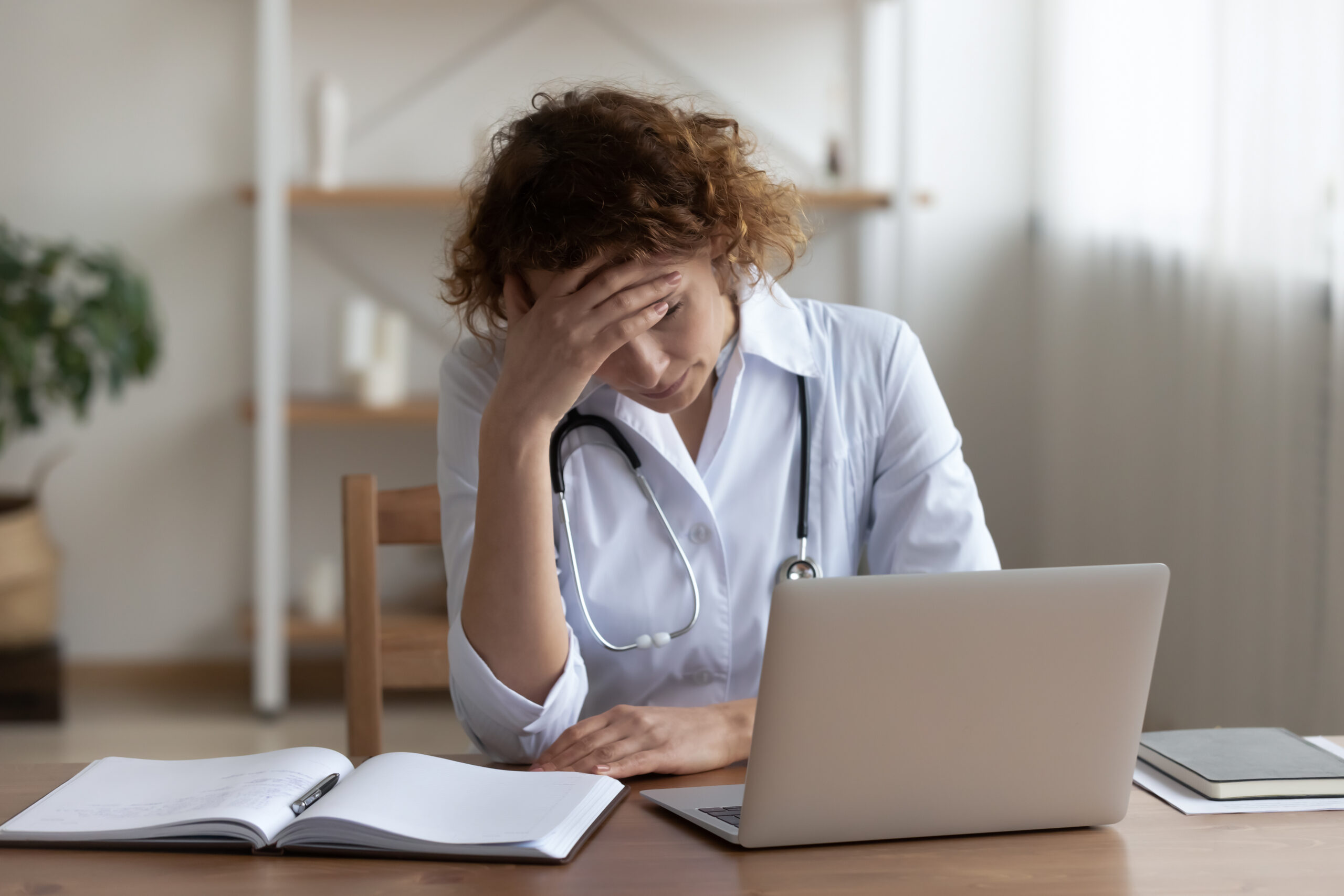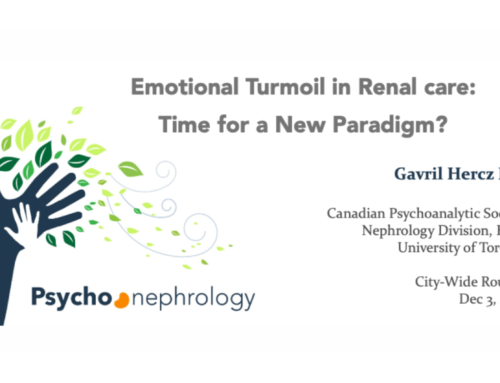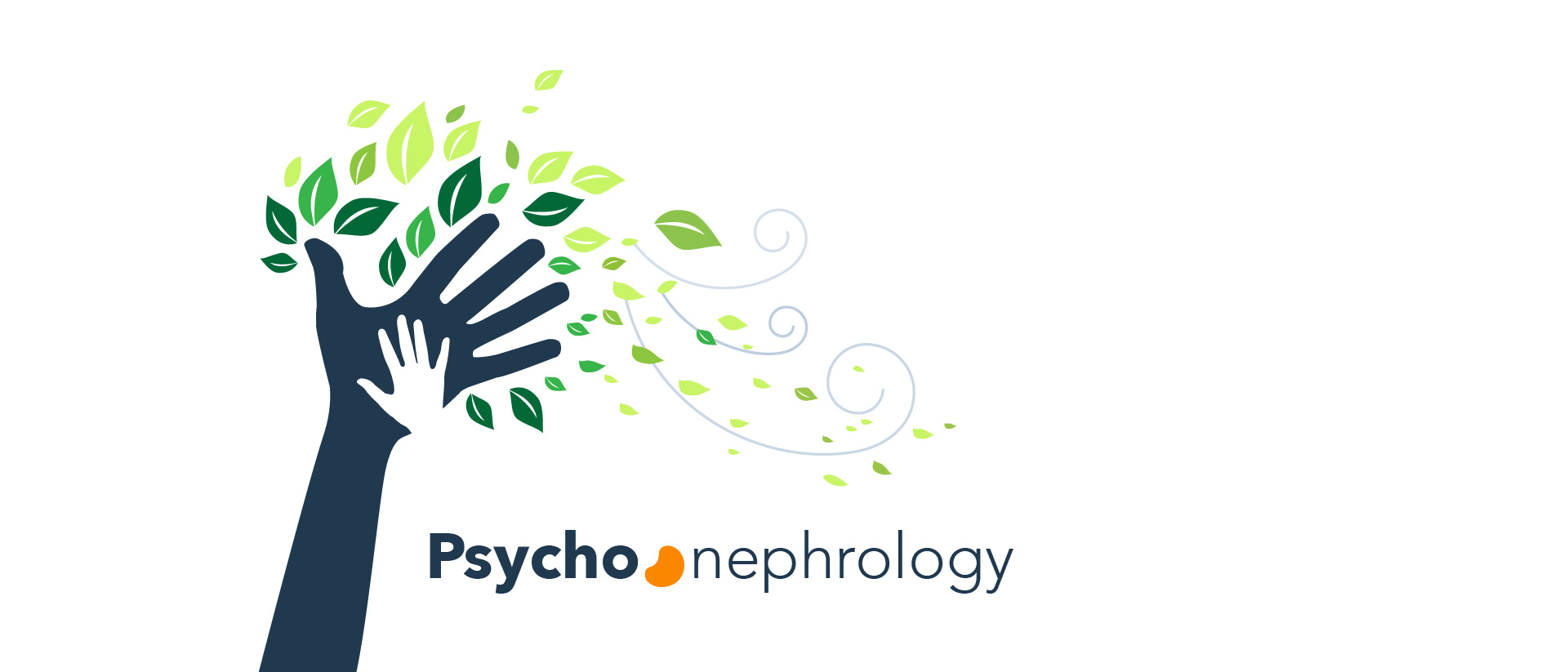
Mental Health Toll on Healthcare Workers
On the frontlines of the pandemic, healthcare workers face extreme challenges to mental health and wellbeing.
As hospitals go “into ‘surge’ mode,” launching rigorous infection control protocols, arranging triage tents, and reserving floors and wings for Covid-19 patients, many medical workers are seeing things that will stick with them for years to come[i]. They are making difficult care decisions and grieving for patients who suffer in isolation from family and friends.
Healthcare workers also face a fear of becoming ill themselves and infecting family and friends. Concerned about the risk of transmission, they are likely to keep away from loved ones, leading to social isolation and the deterioration of social support networks[ii]. In addition to self-imposed isolation, clinicians are subject to social stigma as others fear proximity to the virus and are likely to avoid them to minimize their risk[iii].
On top of this, higher demands in the workplace—including extended work hours, a greater number of patients, and continually evolving information about Covid-19 best practices—increase the likelihood of stress and burnout for clinicians. Healthcare professionals are expected to maintain a level of constant attentiveness and strict Covid-19 guidelines, preventing spontaneity and autonomy. The intensity of work schedules and energy spent at work further reduce the capacity to use social support networks[iv].
It comes as no surprise that these combined pressures result in poor mental health outcomes. In multiple studies, more than 40% of healthcare personnel report anxiety symptoms; more than 46% report depression, 32% insomnia, and 69% have high levels of stress (Huang et al. 2020; Lai et al. 2020; Lin et al. 2020)[v]. Other studies address the prevalence of Acute Stress Disorder (ASD), a condition that develops after experiencing a highly stressful or traumatic event, triggering feelings of fear, body symptoms, flashbacks, and difficulty sleeping and concentrating. With persistent ASD symptoms, healthcare workers are at high risk for developing Post Traumatic Stress Disorder (PTSD)[vi].
Despite the ubiquity and severity of stress and depression, healthcare workers are reluctant to seek help. They are expected to put on a brave face, work with the equipment they have, and overcome feelings of anxiety and burnout[vii].
Coping Strategies
In order to help healthcare workers manage the mental toll of Covid-19 care, it is essential to normalize psychological responses—to reinforce the notion that it is okay not to be okay. Leadership staff should be visible, available, and supportive—encouraging clinicians to express their concerns, making it clear that asking for help is not a weakness[viii]. Open lines of communication will allow hospital leaders to assess the wellbeing of staff and plan interventions accordingly.
Hospitals may promote access to, and ensure staff are aware of, mental health support services (on-site, by telephone, or remote service options)[ix]. Crisis services should be widely advertised.
To combat the negative effects of social isolation and stigma, hospitals can create peer support structures, such as support groups and access to protected spaces for staff to spend time together[x]. This provides opportunities for healthcare workers to share with those who have had similar experiences. It also serves as a helpful venue for communicating staff care information[xi].
It is essential to establish stable access to adequate personal protective equipment (PPE) and accurate information updates on the virus. PPE not only protects healthcare workers’ physical health but reduces the likelihood of mental distress as a result of fear of infection[xii]. Good quality information updates and consistent communication helps to allay worries and allows workers to feel a greater sense of control[xiii].
Finally, healthcare workers should be encouraged to make sure their basic needs are met. Maintaining sleep, physical activity, a healthy diet, and contact with family and friends will strengthen resilience and decision-making abilities. Hospitals might create safe places for clinicians to rest or release emotion, provide easy access to food, and allow for breaks as needed[xiv]. With permission to step back and check-in, staff will be best equipped to deal with duties while preserving wellbeing.
Resources
“COVID-19 Takes Huge Mental Health Toll on Frontline Medical Workers, Early Study Finds.” American Psychosomatic Association. Link
“Interim Briefing Note Addressing Mental Health and Psychosocial Aspects of COVID-19 Outbreak (developed by the IASC’s Reference Group on Mental Health and Psychosocial Support)” Inter-Agency Standing Committee, 17 Mar 2020. Link
Thomas, Liji. “Fear and isolation drive PTSD among health/social workers in COVID-19.” News Medical Life Science, 27 Oct 2020.Link
_ _ _
Reference
- [i] Cyn, By. “COVID Takes Toll On Healthcare Workers’ Mental Health.” The Bay Net, 26 Nov 2020.
- [ii] “Interim Briefing Note Addressing Mental Health and Psychosocial Aspects of COVID-19 Outbreak (developed by the IASC’s Reference Group on Mental Health and Psychosocial Support)” Inter-Agency Standing Committee, 17 Mar 2020.
- [iii] Thomas, Liji. “Fear and isolation drives PTSD among health/social workers in COVID-19.” News Medical Life Science, 27 Oct 2020.
- [iv] “Interim Briefing Note Addressing Mental Health and Psychosocial Aspects of COVID-19 Outbreak (developed by the IASC’s Reference Group on Mental Health and Psychosocial Support)” Inter-Agency Standing Committee, 17 Mar 2020.
- [v] Chen, Ruey, et al. “A Large‐Scale Survey on Trauma, Burnout, and Posttraumatic Growth among Nurses during the COVID‐19 Pandemic.” International Journal of Mental Health Nursing, 27 Oct 2020.
- [vi] “COVID-19 Takes Huge Mental Health Toll on Frontline Medical Workers, Early Study Finds.” American Psychosomatic Association.
- [vii] Cyn, By. “COVID Takes Toll On Healthcare Workers’ Mental Health.” The Bay Net, 26 Nov 2020.
- [viii] Wald, Hedy S. “Optimizing resilience and wellbeing for healthcare professions trainees and healthcare professionals during public health crises – Practical tips for an ‘integrative resilience’ approach.” Medical Teacher, vol 42, no. 7, 2020, pp. 744-755.
- [ix] “Interim Briefing Note Addressing Mental Health and Psychosocial Aspects of COVID-19 Outbreak (developed by the IASC’s Reference Group on Mental Health and Psychosocial Support)” Inter-Agency Standing Committee, 17 Mar 2020.
- [x] British Psychological Society Covid19 Staff Wellbeing Group. “The psychological needs of healthcare staff as a result of the Coronavirus pandemic.” The British Psychological Society.
- [xi] “Interim Briefing Note Addressing Mental Health and Psychosocial Aspects of COVID-19 Outbreak (developed by the IASC’s Reference Group on Mental Health and Psychosocial Support)” Inter-Agency Standing Committee, 17 Mar 2020.
- [xii] Thomas, Liji. “Fear and isolation drives PTSD among health/social workers in COVID-19.” News Medical Life Science, 27 Oct 2020.
- [xiii] “Interim Briefing Note Addressing Mental Health and Psychosocial Aspects of COVID-19 Outbreak (developed by the IASC’s Reference Group on Mental Health and Psychosocial Support)” Inter-Agency Standing Committee, 17 Mar 2020.
- [xiv] British Psychological Society Covid19 Staff Wellbeing Group. “The psychological needs of healthcare staff as a result of the Coronavirus pandemic.” The British Psychological Society.
About the Author
Rachel Gerry
On the frontlines of the pandemic, healthcare workers face extreme challenges to mental health and wellbeing. As hospitals go “into ‘surge’ mode,” launching rigorous infection control protocols, arranging triage tents, [...]





